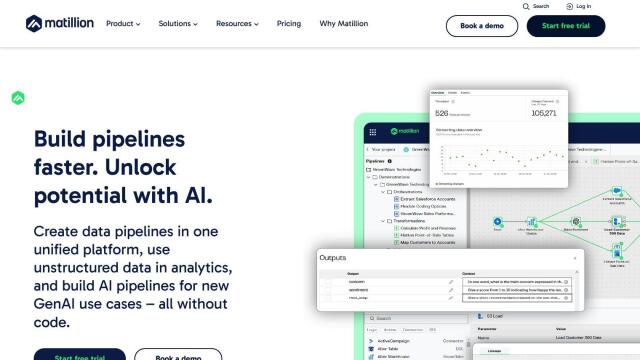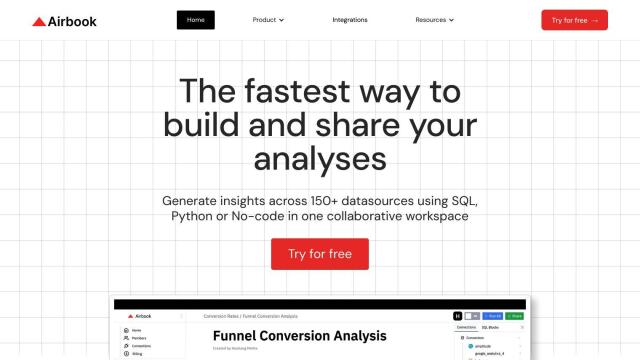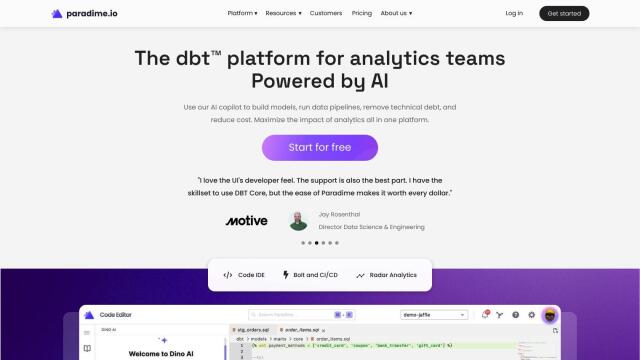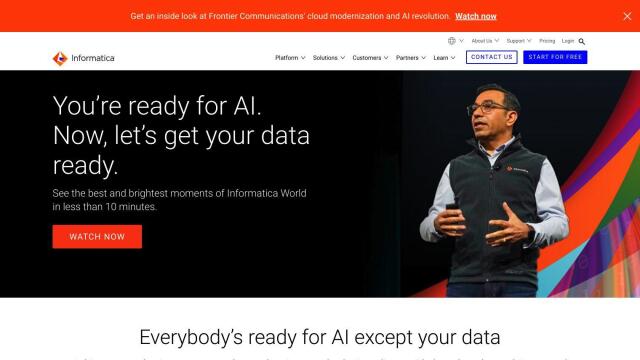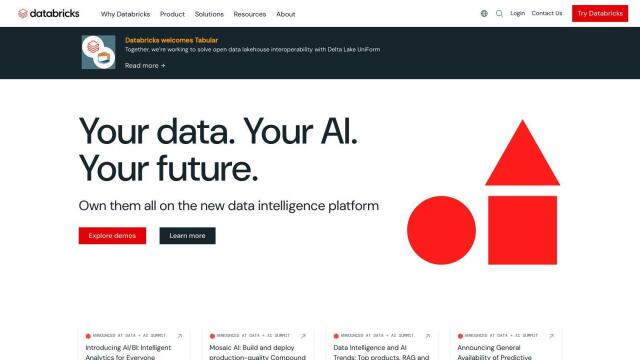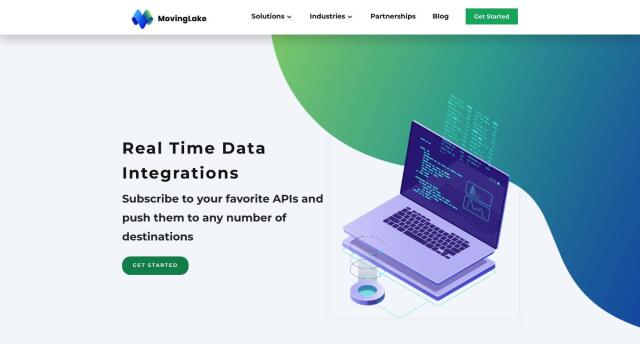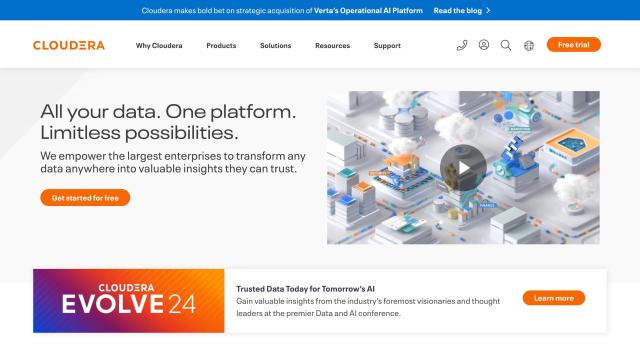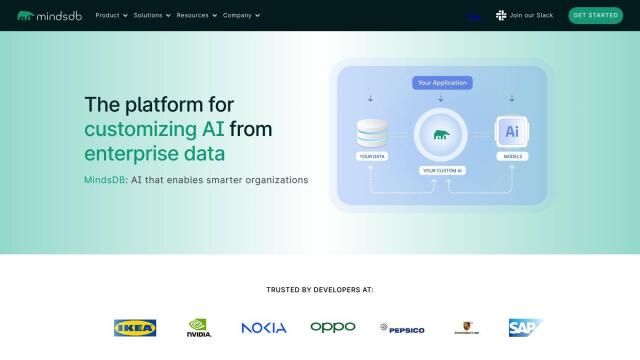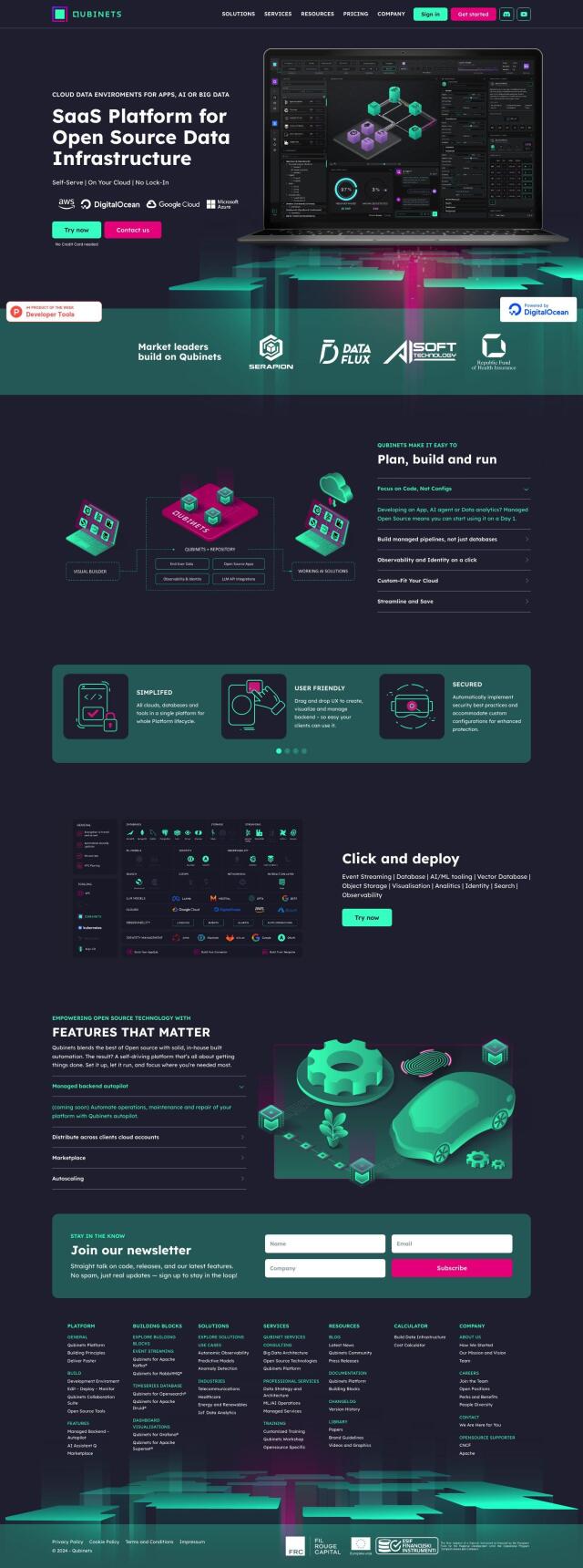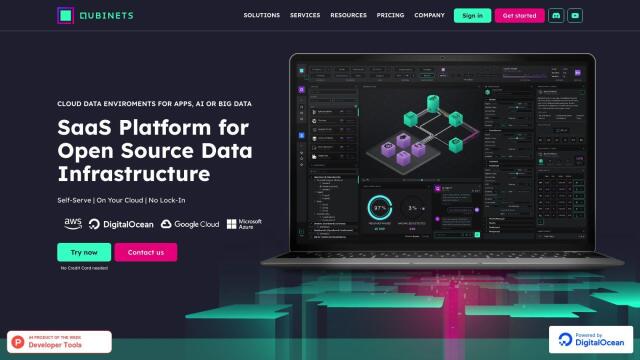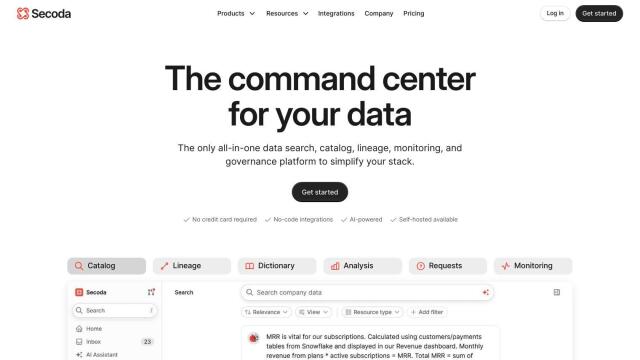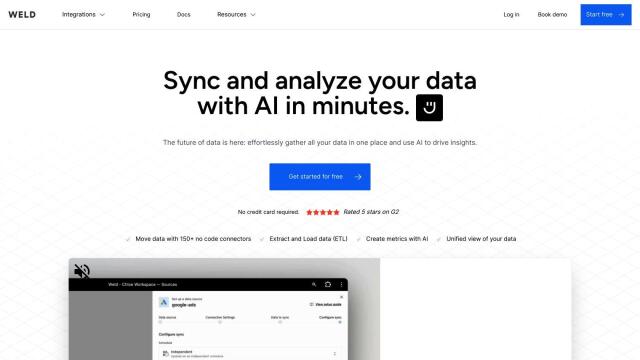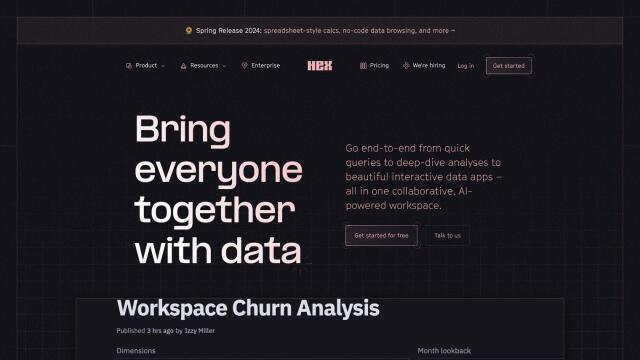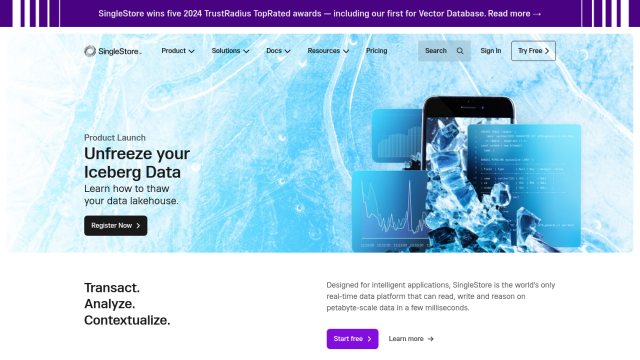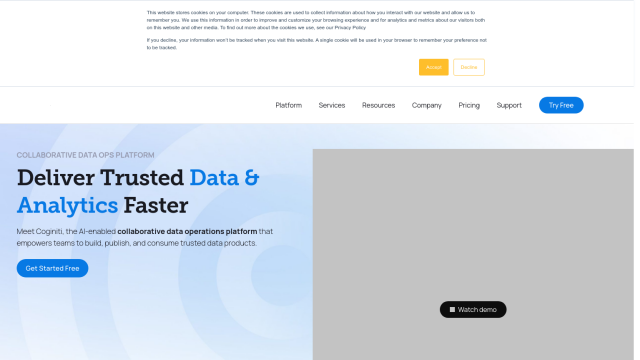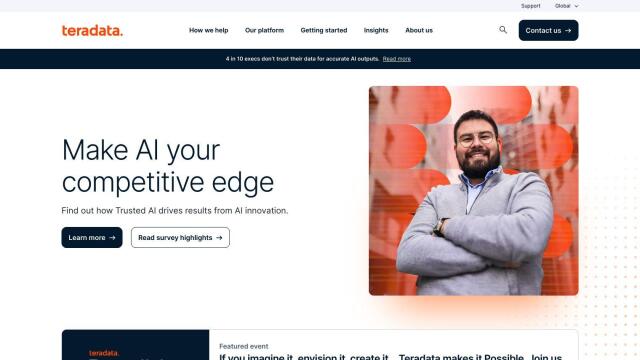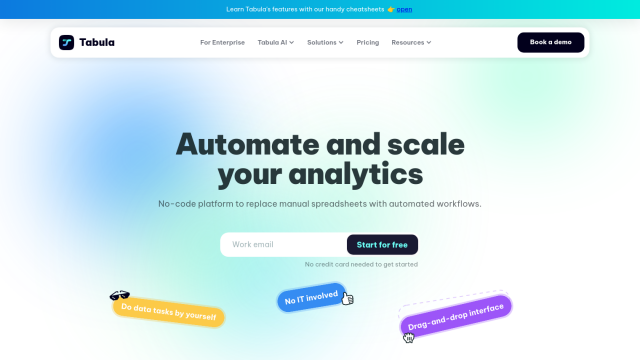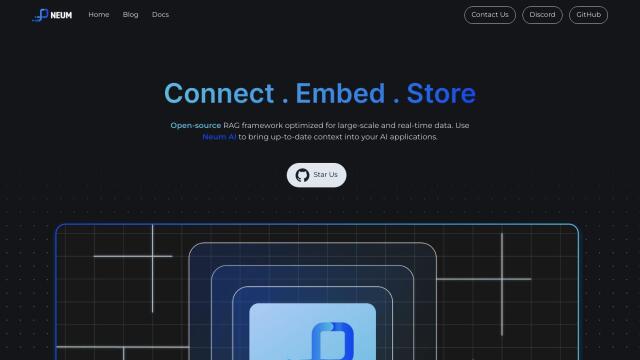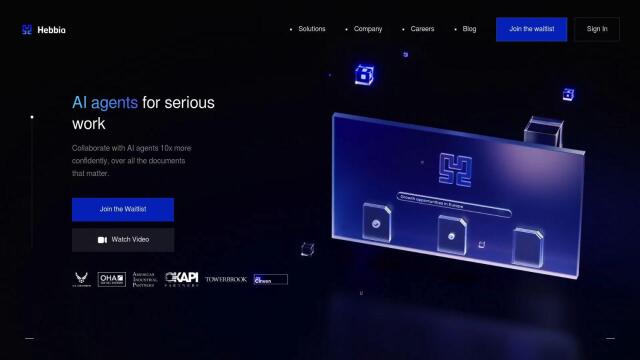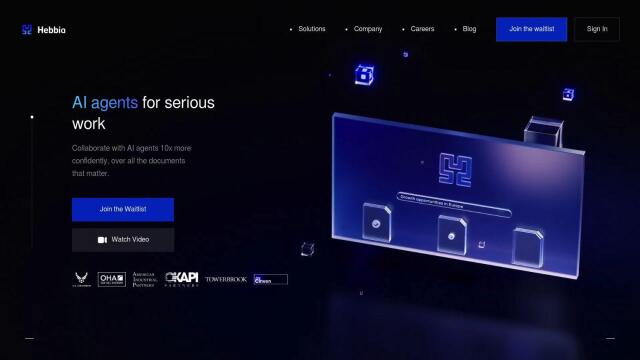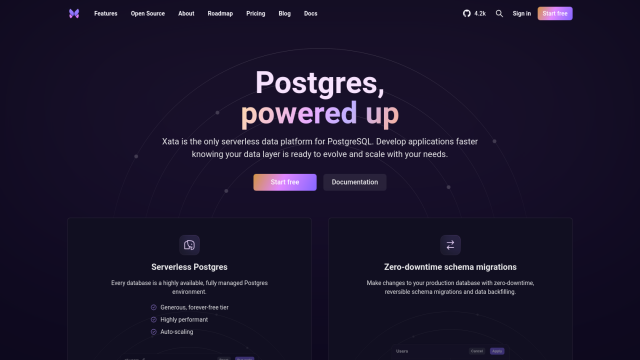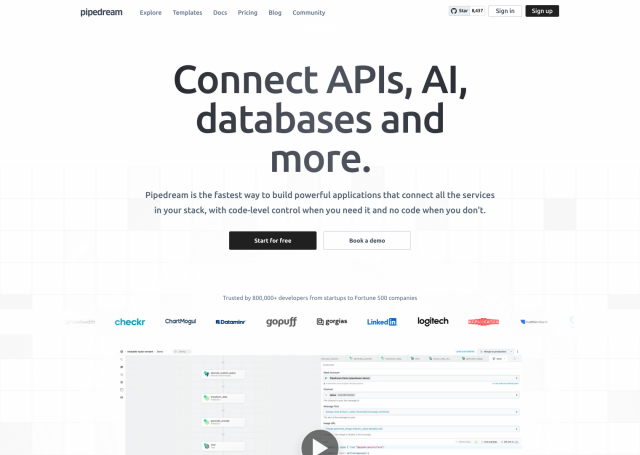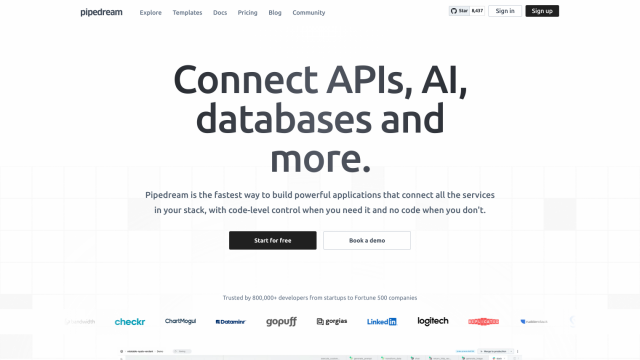Question: I need a platform that can integrate with multiple data sources and manage data pipelines efficiently.
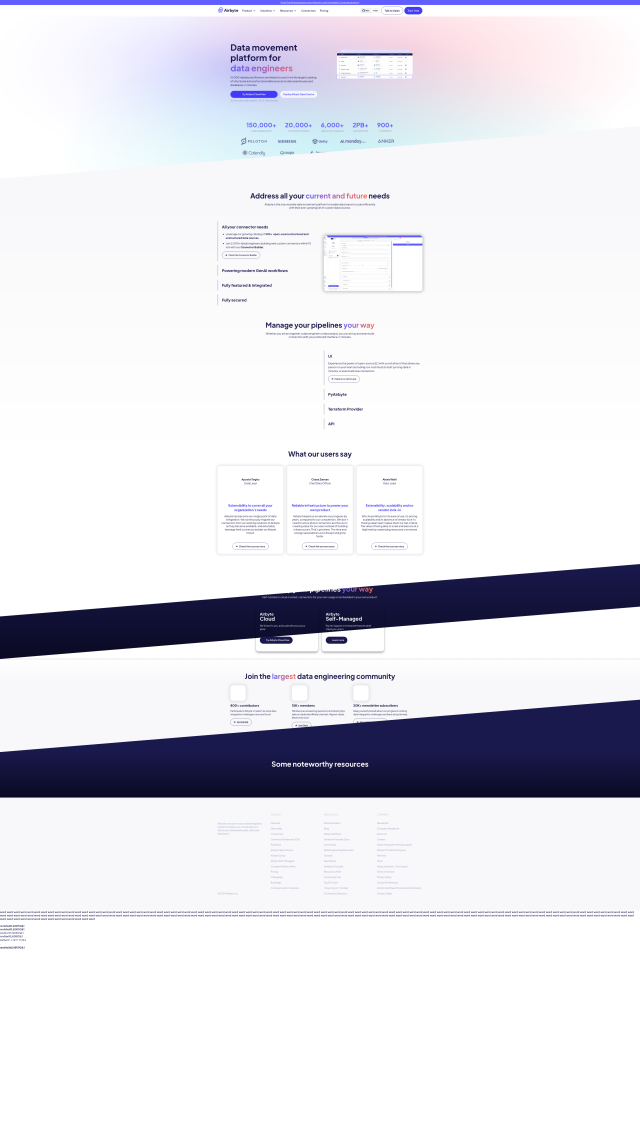
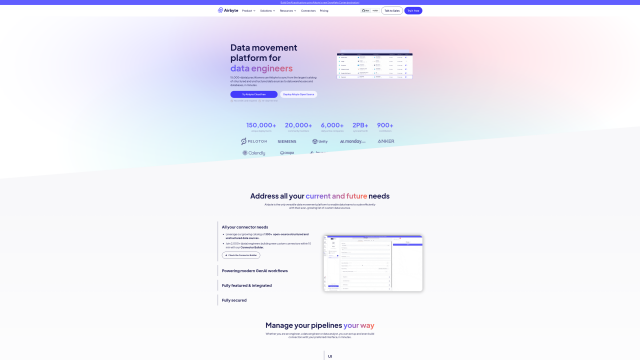
Airbyte
For a platform that spans many data sources and handles data pipelines, Airbyte is a strong contender. This open-source data integration platform can move data from more than 300 structured and unstructured sources to many destinations. It has features like a Connector Builder for custom connectors, automated schema evolution and strong security. It can be deployed flexibly and has an easy-to-use interface, making it good for small-scale and large-scale data integration.

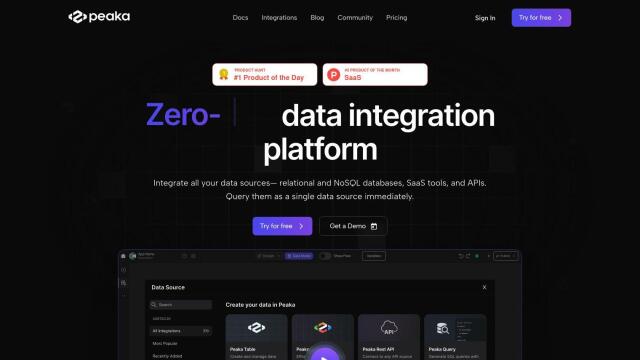
Peaka
Another contender is Peaka, which makes data integration easier by letting you query different data sources -- relational and NoSQL databases, SaaS apps and APIs -- immediately. Peaka supports federated query, streaming ingestion and immediate replication with Change Data Capture (CDC). It's integrated with services like Stripe, MySQL and Google Sheets, and offers a self-service integration with a variety of connectors. That makes it easier to manage data pipelines and cut operational costs.


Dataloop
Dataloop also has a broad data pipeline management option built into its AI development platform. It combines data curation, model management, pipeline orchestration and human feedback to speed up AI application development. Dataloop supports a variety of unstructured data types and has features like automated preprocessing, model management and strong security controls, making it a good option for companies that want to improve collaboration and simplify development.

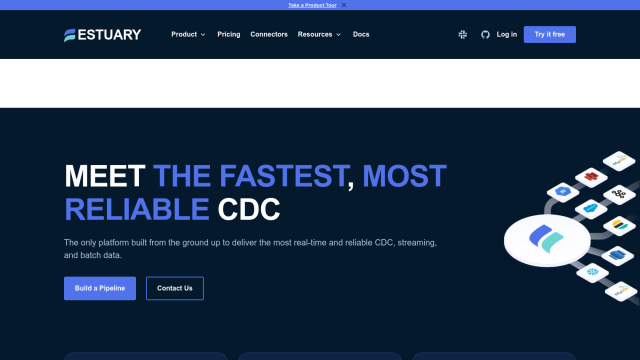
Estuary
If you need real-time data integration and agile DataOps, check out Estuary. The company's platform is geared for change data capture, ETL and streaming pipelines with features like no-code connectors, stream-store-replay and materialization for low-latency data loading. Estuary has an easy-to-use interface and flexible pricing, so it's a good option for companies that need reliable and efficient data pipelines.

